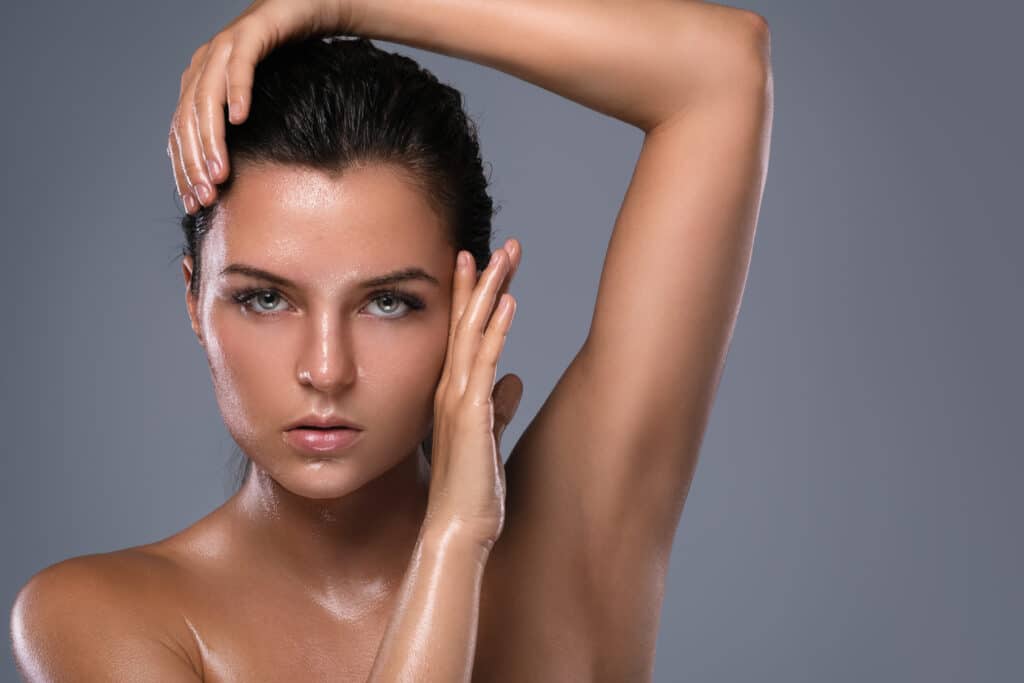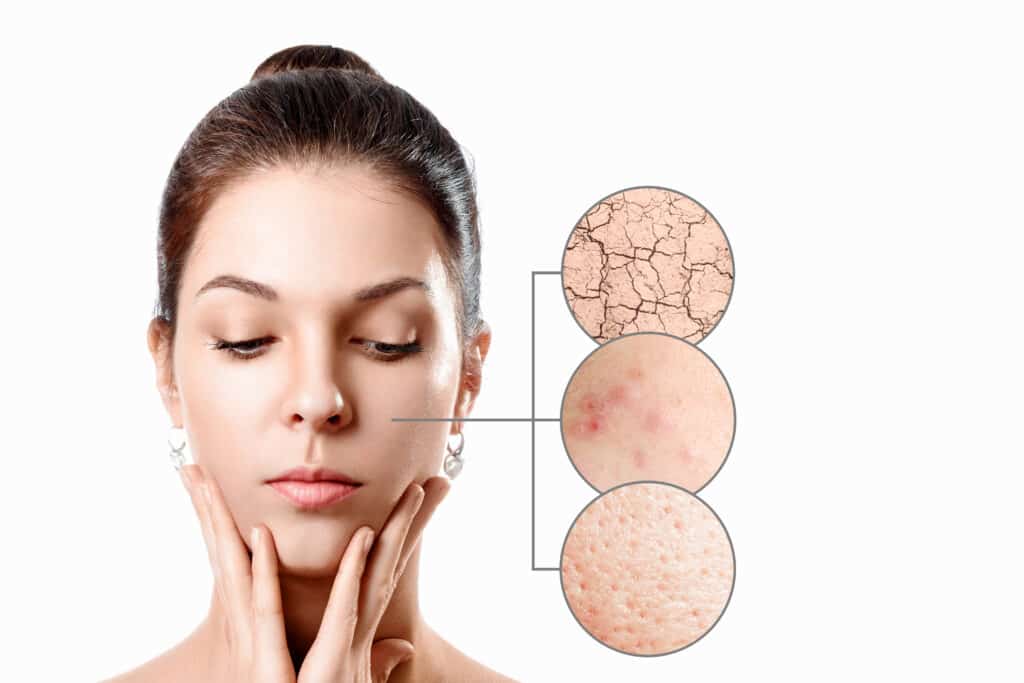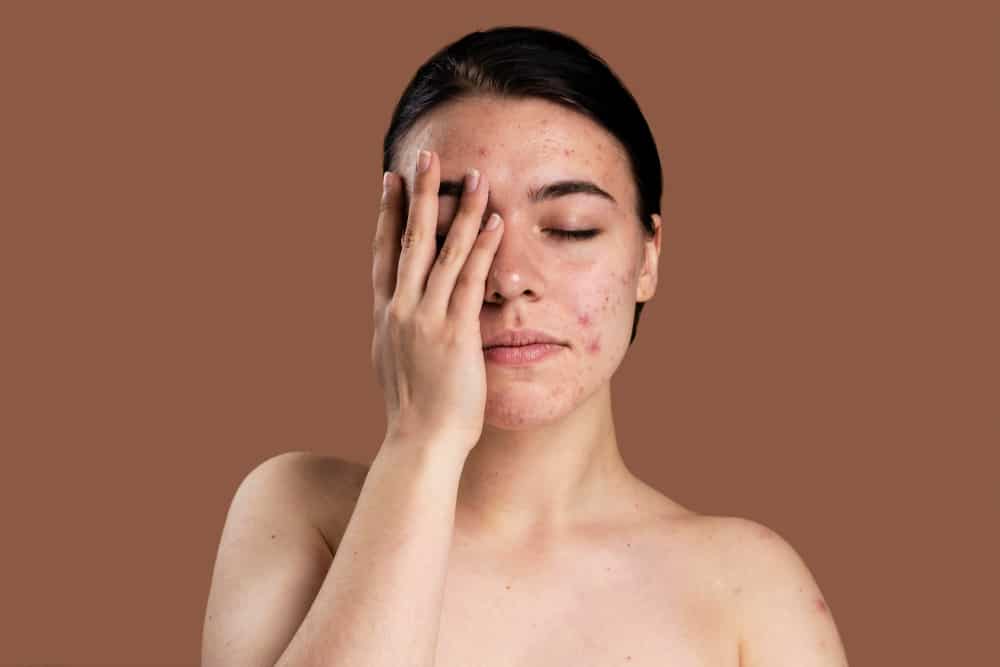Makeup that Fits Your Skin Type:- No two people have exactly the same skin type when it comes to makeup; however, there are general guidelines that can assist you in selecting products appropriate for your unique situation.
Each type of skin has unique features that distinguish itself from others, including pores, oil production, pimples and dryness. Lightness or darkness of your skin should not be the determining factor when selecting cosmetic products tailored specifically for it.
As opposed to viewing your skin from within, it’s essential to observe it from outside and identify its unique properties.
Nothing can be more frustrating than purchasing products that do not complement your skin type, simply due to a misunderstanding about its composition beforehand.
By understanding these six general types of complexions and their associated makeup recommendations, you can learn to avoid making this error in future.
Right Makeup For Your Skin Type
1) Oily Skin
Oily skin conditions result from overactive sebaceous glands. These glands are intended to expel sebum (an oily substance) to keep skin soft and moisturized, yet instead are producing too much sebum which causes excess oily build-up on its surface.
But when these cells overproduce this substance, their skin becomes oily and shiny – with certain characteristics becoming evident over time.
Squamous skin appears shiny with visible pores around the nose and cheeks, and is more prone to breakout due to high amounts of oil build-up within its pores.
How to Select Products for Oily Skin: When selecting appropriate products for oily skin, look for those which can control excess oil production without leaving behind an overly dry appearance on the skin.
Avoid products containing alcohol and chemical exfoliants; opt for gentle cleansers and toners with astringent properties instead.
Apply a lightweight moisturizer with SPF protection and use either pressed or loose powder to reduce shine.
Choose shimmer-free blushes, bronzers, and highlighters when selecting makeup products; for foundation, choose an oil-free formula.
Avoid heavy contouring and shading products and instead use a light hand when applying eye shadow, eyeliner, and mascara.

2) Dry Skin
If your skin appears flaky and very dry, with frequent itching, redness, or irritation – that could be an indicator that you have dry skin.
Many people who suffer from dry skin also possess sensitive skin. Their thinned epidermal barrier allows chemicals and allergens to more readily penetrate, potentially leading to redness and irritation.
How to Select Products for Dry Skin: Those with oily skin tend to experience more instances of dry skin than people without. In order to select suitable products, these individuals often require specific services or solutions tailored specifically for them.
Finding a lightweight moisturizer with SPF protection that doesn’t feel heavy and greasy is crucial for those with dry skin, so it is best to avoid exfoliating scrubs as much as possible.
Avoid harsh soaps as these will exacerbate dry skin issues, instead opt for one with gentle yet effective exfoliating action and choose water-based, creamy makeup products for your makeup application.
Avoid powders and liquids that contain alcohol; soft makeup brushes are better suited for applying blush, bronzer and highlighters as they’re gentler on skin.
3) Combination Skin
If your skin has oily areas and dry ones, that indicates combination skin. It is completely normal for areas on your face to have different levels of oiliness or dryness.
Combination skin is one of the most prevalent skin types, yet also one of the hardest to manage, since you need to pay special attention to both oily areas and dry patches on the body.
Combination skin is more susceptible to acne and blackheads than its counterpart, dry skin. How to Select Products for Combination Skin: Be sure to properly cleanse your skin to eliminate all traces of makeup, oil and dirt before selecting appropriate products for combination skin.
Combine an exfoliating scrub and an oil-free cleanser for extra help with breakouts and oiliness. Finally, utilize a moisturizer with SPF protection as part of your regimen.
If you wear makeup, select products that are lightweight and oil-free. Avoid purchasing heavily pigmented products as these will make your skin appear darker.

4) Sensitive Skin
Combination and Sensitive Skin Sensitive skin is highly reactive to external stimuli such as extreme temperatures, harsh chemicals, and allergens – often manifesting with redness, irritation and dry patches on its surface.
People with sensitive skin should choose mild, fragrance-free products. Scrubs and exfoliating gels that use harsh abrasive particles should be avoided in favor of gentle face washes with plenty of water; to prevent redness from appearing apply moisturizer immediately after washing your face.

5) Normal Skin
Normal Skin normal skin doesn’t stand out in any particular way – it neither oily nor too dry and most people who have it don’t need to put much effort when it comes to skincare or makeup.
If your skin is normal, products formulated for all skin types should work effectively.
6) Dark-skinned Women
Dark-Skinned Women Dark-skinned women must take care in what products they apply to their skin as many contain chemicals that could potentially be detrimental to darker complexions. Select products specifically formulated for those with darker complexions for best results.

Conclusion
While these generalizations may not apply directly to you as an individual, most people tend to fit into one of these categories. While everyone’s skin has unique needs for skincare products and regimens, understanding which are suitable can make your selection process much simpler. Plus, knowing your skin type means being confident that all tools needed can deliver desired results!
Also Refer:- 5 Best Tips Clean Your Makeup Brushes

